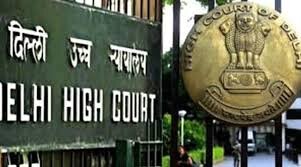The High Court of Delhi in recent verdict directed that when information is sought under the Right to Information Act, the disclosure of an interest in the information sought would be necessary to establish the bonafides of the applicant.
The petitioner in RTI application had requested to provide the following information in respect of appointments for Multi-Tasking Staff at the Presidential Estate, Rashtrapati Bhawan:
“Kindly provide complete residential address and their father’s name of all selected candidates who have been appointed to the post of Multi Tasking Staff, Notification Circular No.A-35011/7/16-Admn.”
The Information was denied by the presidential secretariat on following grounds:
“6. It is a personal information and can’t be provided u/s 8(1)(j) of the RTI Act, 2005. The disclosure of it has not relationship to any public activity or interest and it would cause unwarranted Invasion of the privacy of the individual.”
The petitioner challenged the order wherein the Chief Information Commission declined the request to provide the information. The order of CIC was challenged before the High Court of Delhi.
The High Court of Delhi while deciding the petition gave the following the direction in the matter of Har Kishan Vs. President Secretariat, W.P. (C) 7976/2020 held that:
“12. This Court is of the opinion that whenever information is sought under the RTI Act, disclosure of an interest in the information sought would be necessary to establish the bonafides of the applicant. Non-disclosure of the same could result in injustice to several other affected persons, whose information is sought.”
The directions given by the High Court will be set a precedent to ward off against the RTI applications which are invasive to the privacy of individuals. Now the Government departments can appreciate the genuineness of the requirement by seeking the disclosure of interest from the applicant. The order will go a long way to prevent misuse of RTI law.















